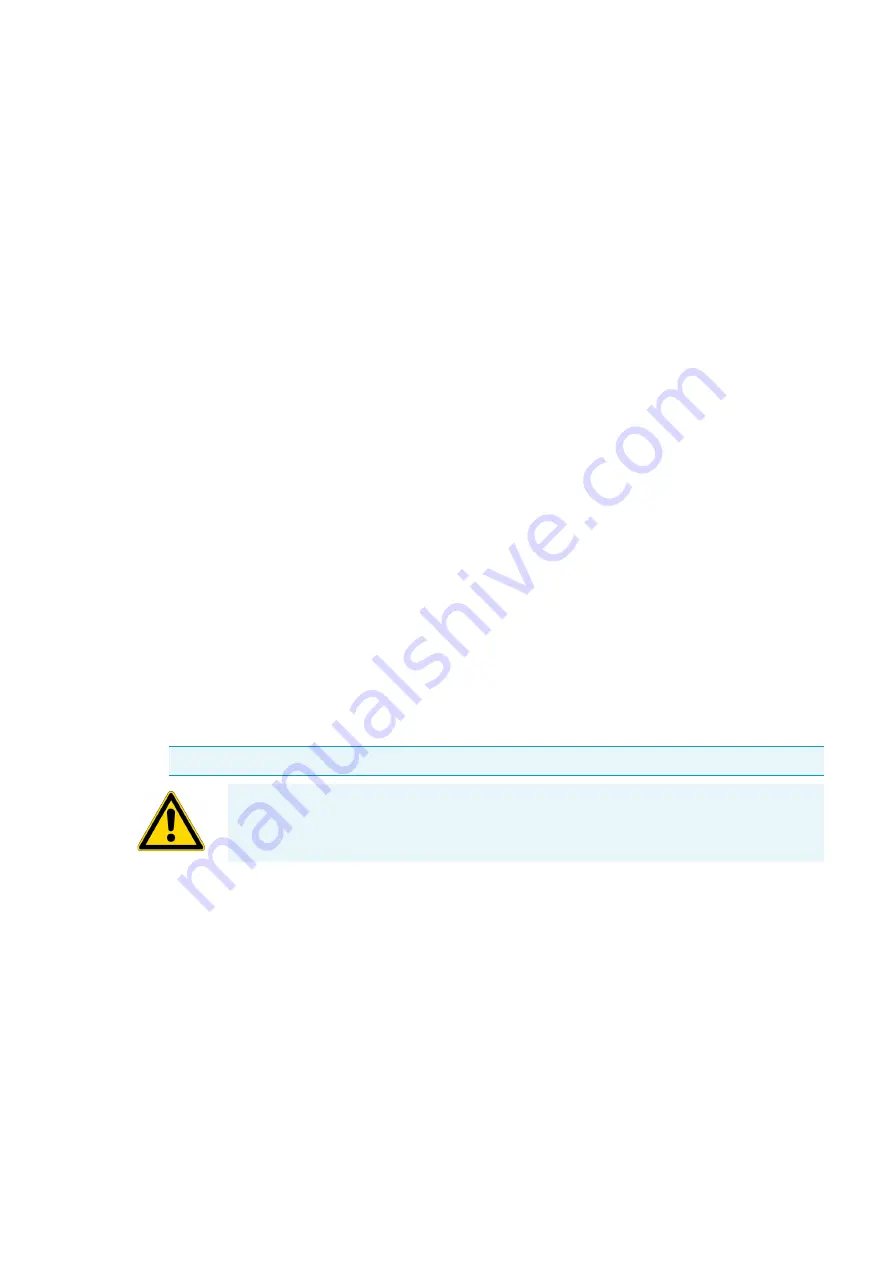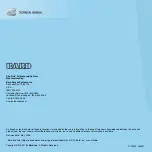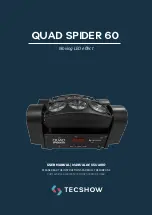
6
Maintenance and Care
Autoclaving
Thermo Scientific
75003603 BIOShield
TM
1000A
6-5
3. Pull out the power supply plug.
4. Grasp the rotor with both hands and lift it vertically off the centrifuge spindle.
5. Remove the centrifuge tubes and adapters and dispose of them or disinfect them.
6. Rinse the rotor first with ethanol and then with deionized water.
•
Adhere strictly to the given application times.
7. Turn the cups upside down and allow the decontamination solution to drain.
8. Rinse the rotor and accessories thoroughly with water.
9. Dispose of the decontamination solution according to the applicable guidelines.
10. Dry all of the rotors and accessories after cleaning with a cloth or in a warm air cabinet at a
maximum temperature of 50 °C.
11. After cleaning, treat the entire surface of aluminum parts with corrosion protection oil
(70009824). Also treat the cavities with oil.
12. Grease the bolt of the swing out rotor with bolt grease (75003786).
Autoclaving
1. Before autoclaving clean rotor and accessories and described above.
2. Place the rotor on a flat surface.
•
Rotors and adapter can be autoclaved at 121 °C.
•
The maximum permissible autoclave cycle is 20 minutes at 121 °C.
Clean the rotor before autoclaving and rinse it with distilled water. Remove all accessories (tubes,
adapters) from the rotor. Place the rotor on a flat surface.
Service of Thermo Fisher Scientific
Thermo Fisher Scientific recommends having the centrifuge and accessories serviced once a year by an
authorized service technician. The service technicians check the following:
•
the electrical equipment;
•
the suitability of the set-up site;
•
the lid lock and the safety system;
•
the rotor;
•
the fixation of the rotor and the drive shaft.
Thermo Fisher Scientific offers inspection and service contracts for this work.
Note
No chemical additives are permitted in the steam.
CAUTION
Never exceed the permitted temperature and duration when autoclaving.
If the rotor shows signs of corrosion or wear, it must be replaced.












































